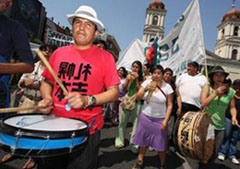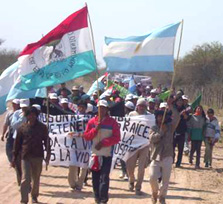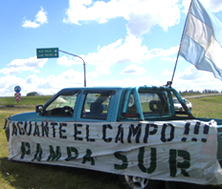
Argentina Revisits Dictatorship: A Year of Human Rights Trials
Tens of thousands in Argentina recently marked the 34th anniversary of the nation's bloody military dictatorship, flooding into the historic Plaza de Mayo with cries of nunca más, or never again. On March 24, 1976 the military ceased power and instituted one of Latin America's darkest chapters of terror. During the 1976-1983 junta, the military disappeared more than 30,000 people.





